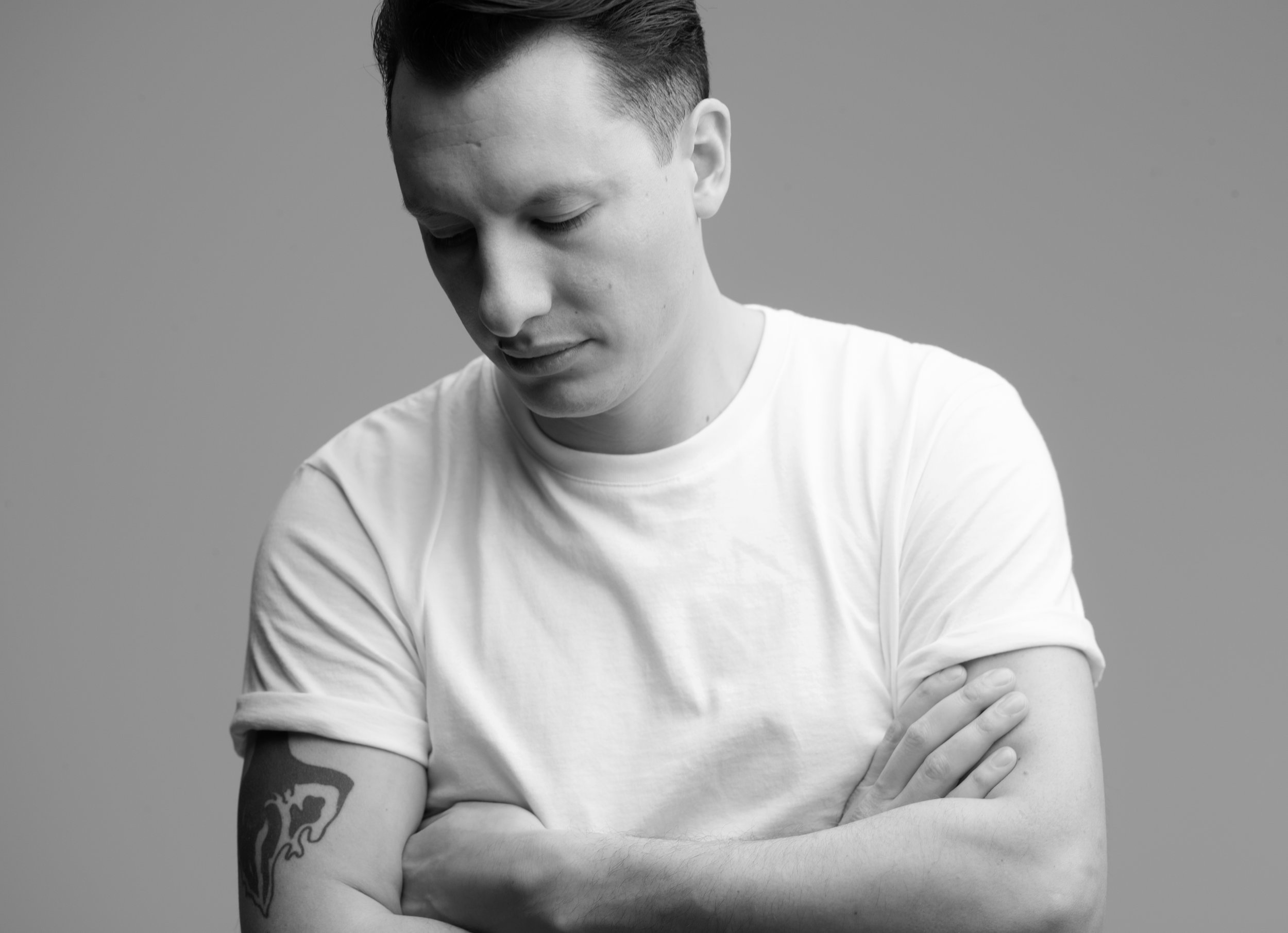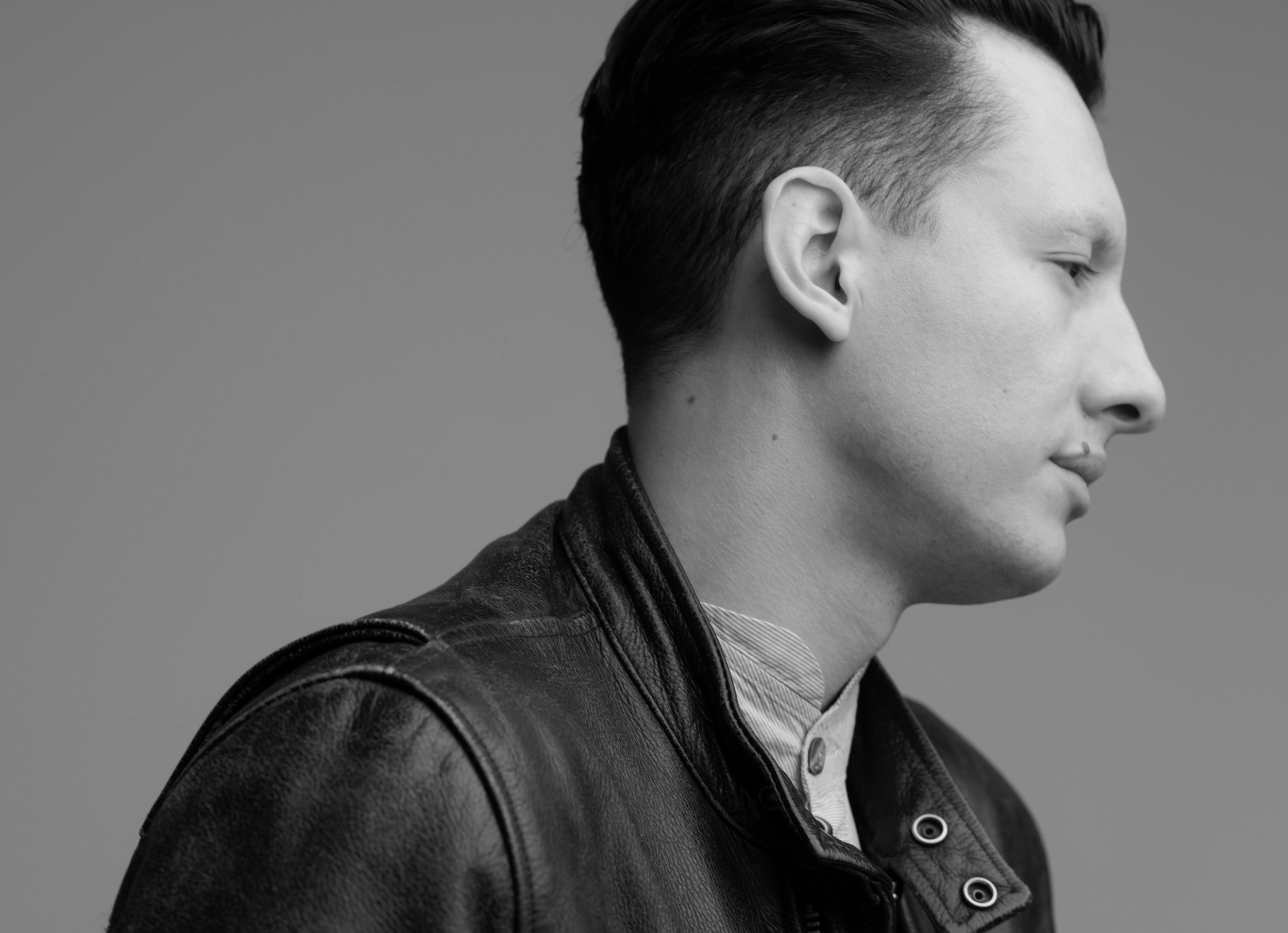SAMUEL HOPE: OTHER MAN
Photo by Vitali Gelwich
ABOUT
The owner of New York City’s Rockwood Music Hall – where SAMUEL HOPE first, as he puts it, “developed my musical chops” – once gave the singer some invaluable advice. “Great music,” he said, “is all about a good melody and a beautiful voice.” HOPE says he’s followed that philosophy ever since, so it’s hardly surprising he’s made both central to OTHER MAN, his dazzling debut album. But while the 34-year-old might conclude, when asked what unites the musicians he’s admired throughout his life, that “the voice is the most important thing”, he’s quick to add a crucial caveat: “… even if that ‘voice’ is an instrument, like Louis Armstrong’s trumpet.”
OTHER MAN definitely introduces a vital new voice to the world, and that doesn’t merely mean the considerable, remarkable sound emerging from HOPE’s vocal cords. It’s one of those rare records that’s immediately distinctive, a rounded, affecting body of mature, considered work that arrives fully formed. “Lead Me On” aches as it ascends, while “Carried Away” radiates both passion and frustration, and the tormented “Won’t Put Up A Fight” chronicles a doomed attraction with suitably poignant elegance. “Nothing To Lose” addresses a similar topic but in a dramatically different manner, with HOPE’s fragile vocal accompanied only by guitar, while “Believe” begins in a comparable fashion, his voice paired instead with just piano, before the song builds to a gripping, dramatic conclusion.
Some songs boast even grander, more ambitious arrangements too, thanks in part to producer Mike Hedges, upon whom HOPE quickly settled after a trial period during which Hedges “helped pull some very special performances out of me”. “Runaway”, for instance, is lush and epic, HOPE’s sensational voice soaring to its limits, while “Hold On” flaunts it at its most emotionally eloquent. “I Won’t Keep You Waiting” presents sincerity at its most soulful, and the closing “Without Warning” – designed to lead one right back to the album’s opening title track – builds up steam, fueled by brass and acoustic guitars, to an unexpected conclusion, its final, ambiguous words still lingering in the aftermath: “I won’t fly away/ Without warning…”
OTHER MAN represents the culmination of a life spent honing HOPE’s skills. A native New Yorker who quips he knows the city’s Museum Of Natural History so well he can navigate it blindfolded, he moved aged eight to New Jersey, where he struggled to fit in. “I turned to playing music to try to find a way to be accepted,” he says, “but my obsession just made me more different.” Admittedly, his decision to demonstrate his flourishing skills on the recorder – an instrument normally resented by youngsters – did little to endear him to new classmates when he stood up, impromptu, to perform in the school cafeteria. Soon, however, he moved on to different instruments, taking trumpet classes and teaching himself guitar by learning Beatles songs. Nonetheless, much of his youthful listening – notably his fondness for local hip hop/pop station Hot 97 – developed initially in response to what he defined of as his parents’ tastes: “Latin music, mostly Colombian and Cuban” for his mother and “The Beatles, Louis Armstrong, Barry White, Cat Stevens” for his father.
Intriguingly, HOPE hated singing when he was growing up, and even though he began writing songs in his mid-teens, he had others perform them. Eventually, however, he realized only he was truly equipped to convey their nuances. “No one ever quite got the message across the way I wrote it,” he says, “so with some encouragement from friends, I finally started singing the songs myself at age 19. I learned by listening to Jeff Buckley’s Grace.” He cut his teeth, before he was even legally allowed to drink, playing in New York dive bars, where, he says, “too many artists let their performance stop at their feet and it doesn’t even make it past the stage. In NYC I learned that if an audience talks while you’re playing, it’s your job to be more interesting. I always imagined that my show went well beyond the stage. All the way past the audience. Through the wall. And that even the guy washing the dishes in the Chinese takeout place behind the venue could feel it. I’m singing for that guy. And everyone in between of course.”
After two years at university – where he studied classical and jazz trumpet – he dropped out to focus exclusively on music, and within three years his life was taking on an increasingly itinerant quality: a lengthy tour of the US, encompassing “cafes, music venues, bars, and living rooms” led to various semi-permanent relocations. “Moving all around throughout my adult life,” he says,” shaped my music a lot. Playing for new audiences and adjusting what I compose, based on the different reactions around the world, has played a major role. I’ve lived in Portland, NYC, London, Berlin, and spent many months traveling around Spain, Germany, and various cities in between. The motivation is always to see somewhere new, and I was often looking for a place to settle. I’m still working on that!”
For now, Berlin is home, and while its legendary musical scene has affected HOPE’s approach, it’s not in the fashion for which the city’s normally known. “It gave me time to try new things,” he says. “Being surrounded by monotonous, often incredibly robotic electronic music also got me very curious to try giving electronic instruments a soul.” Berlin’s where the album was recorded, too, at Dirk Feistel’s Studio X, in which, he says, “I always felt welcome. I met Dirk in my first months living in Berlin, and he invited me to demo some songs with him, then to join him and his friends for Christmas and New Year’s celebrations my first winter here. He made me feel at home. This was extremely important to me. So when I got the chance to record, I knew exactly who to call. It’s the most comfortable I’ve ever been when recording.”
Though the majority of instruments were played by HOPE, Pete Davis (New Order, Björk, Dido) also contributed some programming and keyboards, and strings were arranged, performed and recorded by the renowned Sally Herbert (Christine And The Queens, Muse, Robbie Williams) and her husband. HOPE also reveals that, for the first time since his formal, childhood trumpet studies, he was able to exercise his brass-playing skills by contributing French horn to “Nothing To Lose” and “Without Warning”. It’s not “Louis Armstrong’s trumpet” – that would be impossible – but it’s only appropriate that his debut should underline that the voice he brings to music is as multifaceted as it is melodious and beautiful. To adapt an old saying, “Anything one man can imagine, OTHER MAN can make real.”

